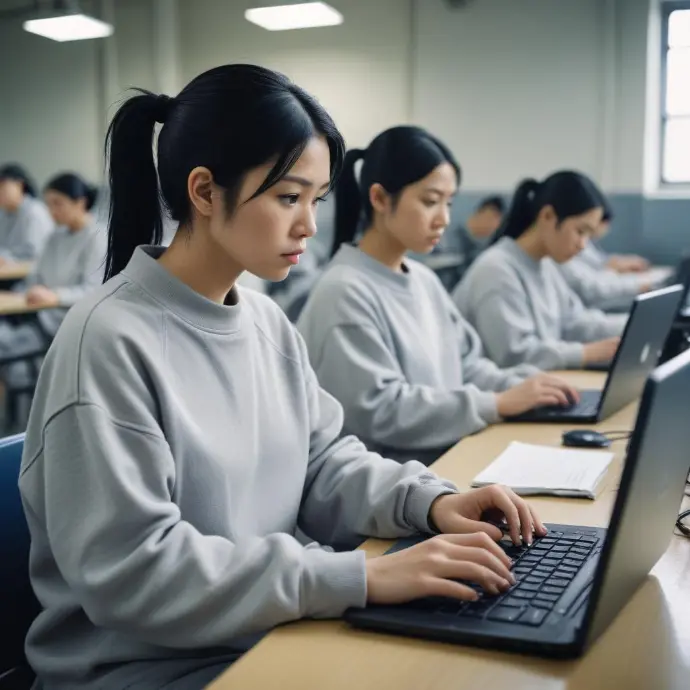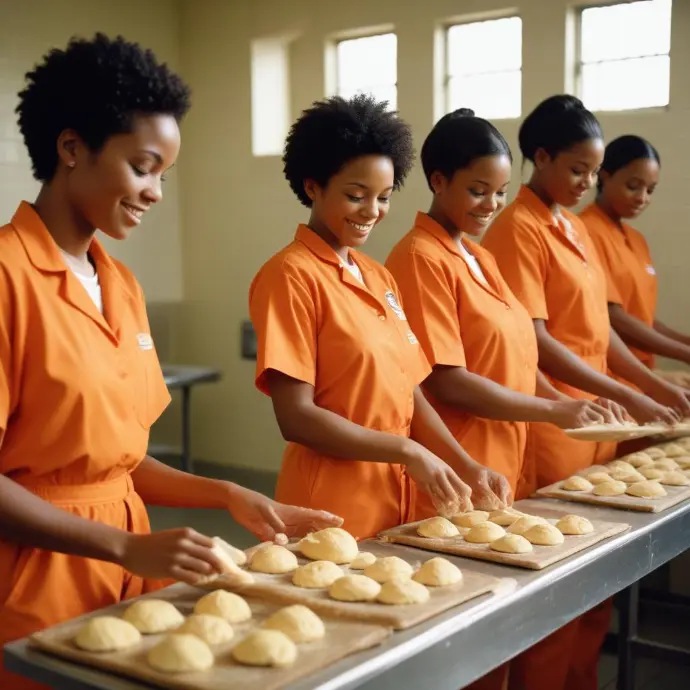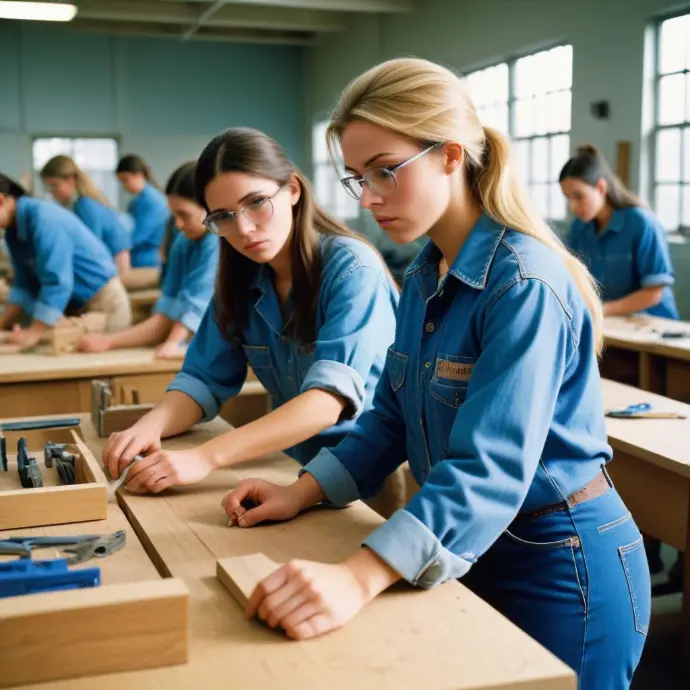Women and Prisons: The Reality of the Women's Prison System
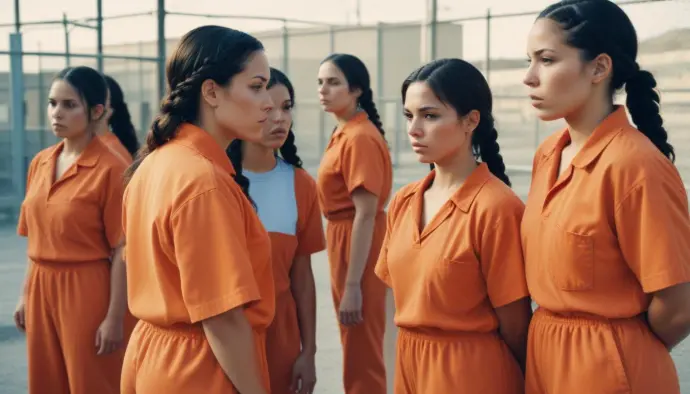
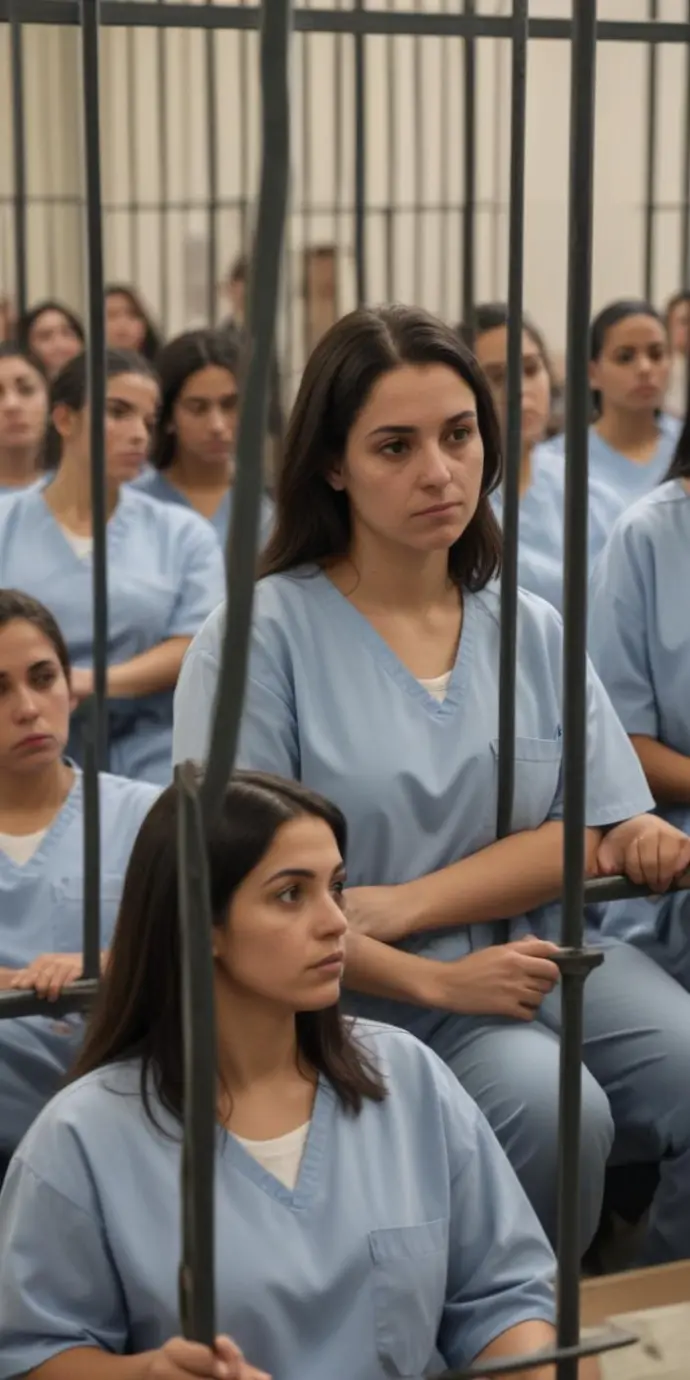
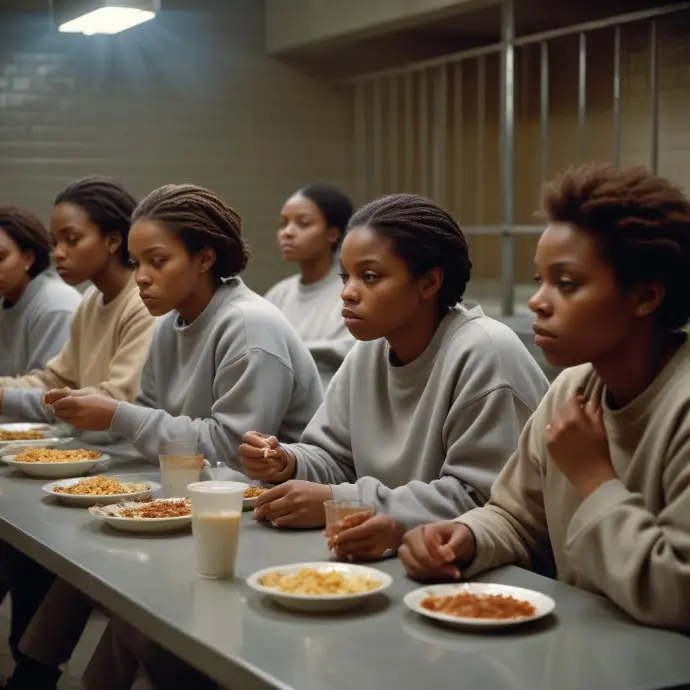
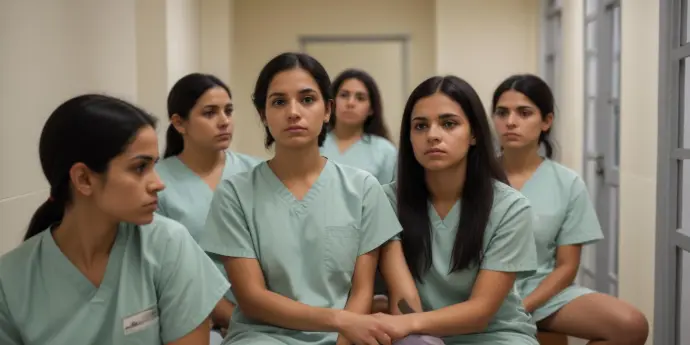
In our feature article, "Women and Prisons: The Reality of the Women's Prison System," we'll explore the shocking situation of women in prisons globally. Get ready for an in-depth analysis that reveals a little-known reality. Are you ready to discover the true situation of women in the prison system? Read on and join the fight for women's rights!
Introduction
The female prison system is a topic that often remains in the shadows, overshadowed by the attention focused on the male prison system. However, it is crucial to explore this hidden reality in depth, understand its background and global context, and analyze the gendered impact it has on the women within it.
Although women represent a minority compared to the male prison population, their presence in the prison system is a significant reality that deserves specialized attention. The unique experiences and challenges faced by women in prison often go unrecognized, highlighting the importance of conducting a comprehensive analysis of this environment.
Conditions, reentry programs, access to healthcare, and other aspects of the female prison system have unique impacts on women, underscoring the need to address this reality in a specific and detailed manner.
It is critical to recognize that the reality of the female prison system not only affects women currently in prison but also has a significant impact on their families and communities. Therefore, understanding this hidden reality is essential to advocating for policies and programs that effectively address the needs of women in prison.
To fully understand the reality of the women's prison system, it is necessary to place it in its global context. Throughout history, women have been systematically marginalized and overlooked in the criminal justice system, resulting in unique challenges for women in prison.
Gender inequalities, discrimination, and lack of access to meaningful opportunities have contributed to the disproportionate presence of women in the prison system. Globally, women in prison face additional barriers compared to their male counterparts, highlighting the importance of addressing these disparities in a comprehensive and holistic manner.
It is crucial to examine not only the conditions in women's prisons at the local level, but also to understand how these experiences relate to broader trends in the prison system globally. Doing so can identify key areas requiring attention and action at the local, national, and international levels.
The gender impact on the prison system is undeniable, and it affects women in ways that are fundamentally different from those of men. The health, safety, emotional, and social well-being needs of women in prison require specific approaches that take into account their gender and the experiences they face within the prison system.
Furthermore, the impact of prison on women extends beyond their time behind bars. Reintegration into society, support to overcome past trauma, and the creation of meaningful opportunities for the future are critical aspects that must be addressed specifically for women in prison.
By recognizing and understanding the gender impact on the prison system, more effective strategies can be developed to address the unique needs of women within it. This is critical to ensuring that the prison system is not only fair, but also equitable and gender-responsive.
The Current Situation of Women in Prison
The situation of women in prison is complex, with problems of overcrowding, sexual violence, and a lack of adequate policies.
Worldwide,
The number of women and girls deprived of liberty has increased more than that of men.
In the Americas, the increase in the female prison population has been three times that of men.
Overcrowding in women's prisons has become a problem in almost every country in the region.
In Latin America,
Detained women suffer the stigma of breaking away from the role of submissive wives and present mothers assigned to them by society.
There is a lack of adequate laws and policies to address problems such as those of nursing mothers or the children of incarcerated women.
In Argentina,
Women are predominantly convicted for drug offenses.
Detained women express concerns about the maintenance of housing and sanitary facilities.
Recommendations
Include a gender perspective in penal and penitentiary policies.
Ensure that women deprived of their liberty have access to clean, comfortable, and hygienic facilities.
Ensure that women deprived of their liberty have access to adequate health services.
According to the National Institute of Statistics and Geography (INEGI), the female prison population has increased by 400% in the last two decades, posing a significant challenge for the prison system. Currently, it is estimated that around 70% of women in prison are mothers, raising questions about the impact on their children and families.
Furthermore, a United Nations (UN) report reveals that women prisoners have higher rates of mental illness compared to the general population, underscoring the importance of addressing mental health within women's prisons.
Furthermore, Indigenous and Afro-descendant women represent a disproportionately high proportion of the prison population, reflecting the structural and socioeconomic disparities that influence entry into the prison system.
Living conditions in women's prisons are often precarious, with overcrowded facilities, limited access to adequate health services, and a lack of effective reintegration programs. The lack of attention to women's specific needs, such as menstrual hygiene and prenatal care, raises serious concerns about respect for human rights within these institutions.
Furthermore, forced separation from their children, the lack of educational and employment opportunities, and exposure to violence and exploitation within prisons contribute to perpetuating the cycle of marginalization and vulnerability for women deprived of liberty.
It is essential to address these conditions and ensure respect for the dignity and human rights of women in prison, recognizing their vulnerability and the need for differentiated approaches that address their specific needs.
Gender-based violence within prisons is a crucial concern, as women deprived of liberty face a high risk of physical, sexual, and psychological abuse at the hands of prison staff and other detainees. This reality reflects the persistence of unequal power dynamics and the lack of effective mechanisms to protect women within the prison system.
Furthermore, the lack of access to effective avenues for reporting and protection, coupled with the social stigma associated with being in prison, creates an environment conducive to the perpetuation of gender-based violence. It is essential to implement protocols for the prevention and response to gender-based violence adapted to the reality of women's prisons, with a focus on protecting the human rights of detained women.
The reality of the women's prison system presents significant challenges that require a comprehensive, gender-sensitive response centered on respect for the human rights of women deprived of liberty.
Reintegration and rehabilitation programs are essential to addressing the realities of the women's prison system. Given the complexity of the situations faced by women in prison, it is crucial to have programs specifically designed to meet their unique needs. These programs may include job training, education, psychological counseling, medical care, and support for social reintegration.
The effectiveness of reintegration and rehabilitation programs in the women's prison system can be measured by their ability to reduce recidivism and provide women with the tools necessary to build stable and productive lives after serving their sentences. It is essential that these programs are supported by adequate resources and trained staff, and that they are tailored to the individual needs of each woman.
Furthermore, it is important to involve the community in these programs, fostering collaboration with employers, nonprofit organizations, and external support services. By providing women with real opportunities to reintegrate into society, we can significantly contribute to breaking the cycle of recidivism and empowering women to build a better future outside of prison walls.
Challenges and Barriers in the Women's Prison System
The women's prison system faces a series of challenges and barriers that significantly affect women prisoners. These difficulties range from social stigma and gender discrimination to limited access to health services and the separation of incarcerated mothers from their children. These issues highlight the need for a thorough exploration and in-depth analysis of human rights in the context of women's prisons.
Women entering the prison system often face a social stigma that further stigmatizes and marginalizes them. Society tends to judge women who commit crimes more harshly, leading to gender discrimination that affects their social reintegration and emotional well-being. This stigma can hinder their access to employment and educational opportunities once they serve their sentences, perpetuating a cycle of marginalization and exclusion.
Gender discrimination is also evident in the very dynamics of the prison system, where women's specific needs are often overlooked or ignored. From the lack of rehabilitation programs that address the underlying causes of their offenses to the absence of adequate childcare facilities for incarcerated women, gender discrimination is reflected in every aspect of the prison experience.
Addressing social stigma and gender discrimination in the women's prison system is essential to ensuring respect for these women's human rights and promoting their successful reintegration into society.
Another significant challenge facing women in the prison system is limited access to health services and reproductive rights. Many women deprived of liberty struggle to receive adequate medical care, including prenatal care, access to contraceptives, and treatment for mental health conditions.
This situation is exacerbated by a lack of training among prison staff on women-specific health issues, which can result in inadequate or insensitive care for inmates' medical and mental health needs. The denial of these fundamental rights not only affects the physical and emotional well-being of women in prison but also constitutes a violation of their human rights.
Ensuring equal access to health services and reproductive rights for women in prison is critical to protecting their dignity and well-being, as well as complying with international human rights standards.
The separation of incarcerated mothers from their children is a profoundly impactful challenge in the women's prison system. This situation not only affects the family and emotional bond between mothers and their children, but also has long-term consequences for the children's development and well-being. The lack of programs that support the mother-child relationship and the scarcity of adequate family visits exacerbate this problem, perpetuating the suffering of both mothers and their children.
It is crucial to recognize the devastating impact of the separation of incarcerated mothers from their children and promote initiatives that encourage the maintenance of family ties, as well as the reintegration of mothers into society in a way that allows them to effectively fulfill their parental role.
Violence and abuse by prison staff is a serious problem affecting many women within the prison system. Numerous cases of physical, emotional, and sexual abuse perpetrated by prison guards and staff have been documented. This situation violates the human rights of women deprived of liberty and creates an environment of fear and mistrust.
Reports of abuse and violence in women's prisons are alarmingly frequent. Many women face sexual harassment, extortion, and abuse by prison staff, which exacerbates their vulnerability. This problem highlights the need to implement effective protocols to prevent and punish gender-based violence in prisons, as well as to provide comprehensive support to women who are victims of these situations.
Abuse and violence by prison staff not only affects the physical and psychological integrity of women in prison, but also hinders their process of social reintegration. It is essential to raise awareness of this issue and work to promote safe and respectful environments within prisons, where the human rights of all people are guaranteed, regardless of their gender or social status.
Impact on the Human Rights of Women in Prison
The women's prison system poses significant challenges in ensuring full respect for women's human rights. One of the fundamental aspects affected by this reality is access to health and well-being. Women in prison face barriers to receiving adequate medical care, including a lack of access to mental and reproductive health services. This situation highlights the need to comprehensively address women's health in incarcerated settings, guaranteeing their right to quality medical care, regardless of their legal status.
Furthermore, it is crucial to consider prison living conditions and their impact on women's physical and mental health. Overcrowding, lack of adequate hygiene, and exposure to violence can have serious consequences for the well-being of women in prison. Therefore, it is necessary for prison authorities to implement measures that guarantee dignified living conditions that respect the human rights of women deprived of their liberty.
In this context, it is essential to promote a comprehensive health approach that addresses the specific needs of women in prison, recognizing their rights to health and well-being as an essential part of their dignity and autonomy.
The reality of the women's prison system poses unique challenges regarding reproductive rights and motherhood. Women in prison face obstacles to accessing reproductive health services, including information on contraception, prenatal care, and humane childbirth. Furthermore, women who are mothers may be separated from their children, impacting both their emotional well-being and the rights of children.
It is essential to recognize that women in prison retain their reproductive rights and that the prison system must guarantee their access to sexual and reproductive health services and ensure respect for their motherhood. This entails implementing policies that allow pregnant women to remain with their children for as long as possible, provided it is in the best interests of the child, and that guarantee the necessary support for the care of their children in the event of separation.
Furthermore, it is crucial to address the stigmatization and discrimination faced by pregnant women and mothers in prison, promoting a human rights-based approach that recognizes their dignity and values their role as caregivers and educators, even in the context of incarceration.
The women's prison system poses significant challenges in ensuring full respect for women's human rights. One of the fundamental aspects affected by this reality is access to health and well-being. Women in prison face barriers to receiving adequate medical care, including a lack of access to mental and reproductive health services. This situation highlights the need to comprehensively address women's health in incarcerated settings, guaranteeing their right to quality medical care, regardless of their legal status.
Furthermore, it is crucial to consider prison living conditions and their impact on women's physical and mental health. Overcrowding, lack of adequate hygiene, and exposure to violence can have serious consequences for the well-being of women in prison. Therefore, it is necessary for prison authorities to implement measures that guarantee dignified living conditions that respect the human rights of women deprived of their liberty.
In this context, it is essential to promote a comprehensive health approach that addresses the specific needs of women in prison, recognizing their rights to health and well-being as an essential part of their dignity and autonomy.
Women's right to live free from violence and discrimination is fundamental in all aspects of life, including their experience in the prison system. Unfortunately, women deprived of liberty face a number of additional challenges that often place them in situations of extreme vulnerability. Gender-based violence, both inside and outside prisons, is a troubling reality that affects a large number of women worldwide.
Furthermore, gender discrimination manifests itself in various forms within the prison system, from lack of access to reproductive health services to the absence of specific reintegration programs for women. It is critical to understand that a woman's incarceration affects not only her, but also her families and communities, which underscores the importance of addressing these issues holistically.
To ensure full respect for women's human rights in the prison system, it is necessary to implement policies and programs that effectively address gender-based violence and discrimination, as well as promote gender equality at all levels of the criminal justice system. This will not only benefit women prisoners but will also contribute to building more just and inclusive societies for all.
Current Challenges and Measures for Reform
The comprehensive analysis of global human rights includes a critical assessment of prison legislation and policies regarding gender equity. In many countries, the reality of the female prison system reveals significant disparities compared to facilities designated for male inmates. Women often face unique challenges, such as limited access to reproductive health services, childcare, and job training programs. The lack of specific attention to the needs of women in prison reflects the pressing need for legislative reforms and prison policies focused on gender equity.
The implementation of concrete measures to address the deficiencies in living conditions within women's prisons is essential to ensure respect for the human rights of female prisoners. Improving hygiene, providing adequate medical care, and promoting security within prison facilities are critical aspects that require immediate attention. Furthermore, it is imperative to establish protocols to prevent gender-based violence and protect women deprived of their liberty from any form of abuse or discrimination. These improvements in living conditions are not only essential to safeguard the well-being of women in prison, but are also a reflection of a prison system that respects the human rights of all people, regardless of gender.
Comprehensive support for the social reintegration of released women is a crucial component to ensuring their successful transition back into society. This involves implementing job training programs, psychological counseling, job search assistance, and access to stable housing. The lack of adequate support for released women can exacerbate their vulnerability and hinder their effective integration into society. Therefore, it is essential that prison systems and relevant authorities work in collaboration with civil society organizations to offer comprehensive support that promotes the autonomy and well-being of women who have served their sentences.
Preventing gender-based violence and abuse in the women's prison system is a crucial challenge facing authorities and human rights organizations. Women deprived of liberty are particularly vulnerable to various forms of violence, including physical, sexual, emotional, and psychological violence. It is essential to implement specific policies and programs that address these issues, ensuring a safe and respectful environment for women within penitentiary institutions.
To prevent gender-based violence and abuse in the penitentiary system, it is necessary to train prison staff in gender perspective and in identifying risk situations. Likewise, effective mechanisms must be established to receive reports of violence and abuse, providing support to women who are victims. The implementation of clear action protocols and constant monitoring of prison conditions are fundamental steps to guarantee the safety and well-being of women in prison.
Furthermore, it is crucial to promote awareness and education about women's rights among the prison population, fostering mutual respect and gender equality. Cooperation with civil society organizations and the active participation of women prisoners in the development of policies and programs are essential to comprehensively addressing the prevention of gender-based violence and abuse in the women's prison system.
Conclusions
The reality of the women's prison system highlights the urgent need to adopt a gender-responsive approach to criminal justice. It is essential to recognize the inequalities and barriers women face in the prison system and work toward the implementation of policies and programs that comprehensively address these issues.
Gender-responsive criminal justice involves considering the specific experiences and needs of women in conflict with the law, as well as addressing the underlying causes of female offending. This includes promoting alternatives to prison for women whose crimes are related to situations of vulnerability or gender-based violence, as well as implementing rehabilitation programs that address the particular needs of women in the prison system.
Furthermore, it is essential to guarantee equal access to justice and legal remedies for women, as well as the protection of their human rights throughout the criminal process. This involves specialized training for justice officials, raising awareness about gender issues, and promoting a justice system that effectively responds to women's needs.

 IHRO NEWS
IHRO NEWS